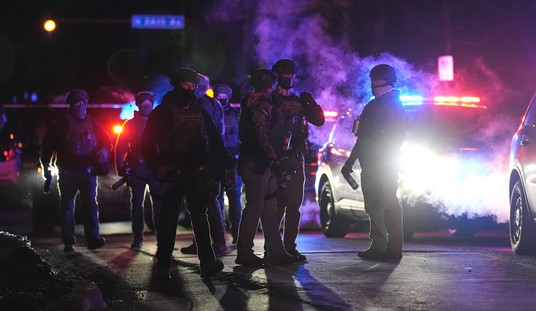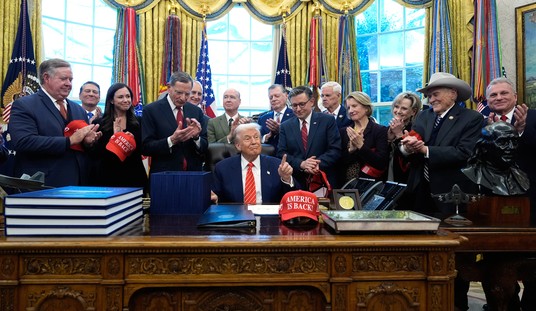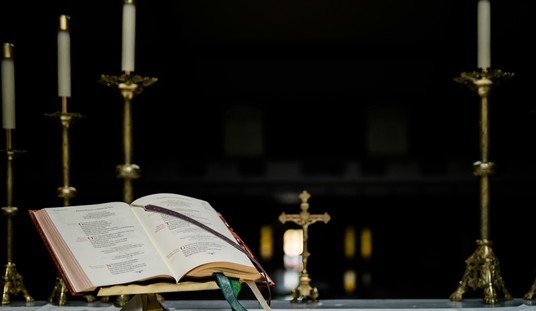Upfront, let me say I disapprove of link-whoring and click-baiting. Because of that, and because that is what Vox.com is doing doing with this article I am not providing a link to the article because that would simply reward bad behavior. On the other hand, the hipster-kale-with-quinoa crowd actually believes the stuff they read in Vox.com so I’m not going to let it pass. The author is some guy named Dylan Matthews, who has never held a job other than telling the rest of us how to live. This is the ‘man’:
’nuff said.
The article, 3 reasons the American Revolution was a mistake, opens:
This July 4th, I’m celebrating by taking a plane from the US to the United Kingdom. The timing wasn’t intentional, but I embrace the symbolism. American independence in 1776 was a monumental mistake. We should be mourning the fact that we left the United Kingdom, not cheering it.
Of course, evaluating the wisdom of the American Revolution means dealing with counterfactuals. As any historian would tell you, this is messy business. We obviously can’t be entirely sure how America would have fared if it had stayed in the British Empire longer, perhaps gaining independence a century or so later, along with Canada.
But I’m reasonably confident a world where the revolution never happened would be better than the one we live in now, for three main reasons: slavery would’ve been abolished earlier, American Indians would’ve faced rampant persecution but not the outright ethnic cleansing Andrew Jackson and other American leaders perpetrated, and America would have a parliamentary system of government that makes policymaking easier and lessens the risk of democratic collapse.
Abolition would have come faster without independence
Abolition in most of the British Empire occurred in 1834, following the passage of the Slavery Abolition Act. That left out India, but slavery was banned there too in 1843. In England itself, slavery was illegal at least going back to 1772. That’s decades earlier than the United States.
This alone is enough to make the case against the revolution. Decades less slavery is a massive humanitarian gain that almost certainly dominates whatever gains came to the colonists from independence.
Best casing this argument, abolition would have been moved back by about 31 years. What Matthews doesn’t consider is how abolition came about in practice. When slaves in the West Indies were freed on August 1, 1834, they were obliged to continue working for their former masters for 4-6 years without compensation. So chattel slavery was replaced not with emancipation but with peonage or serfdom. This moves the emancipation date forward to 1838/39. When they were freed, they did not own the houses they lived in, the livestock in their yards, and they were responsible for paying rent. Say what you will about Sherman, but his ’40 acres and a mule’ order recognized that freedom is pretty meaningless if you don’t have food or shelter.
Emancipation was accompanied by compensation to slave owners, this is the system that would have been used in the United States had the Civil War been avoided. What did it cost?
The British government paid out £20m to compensate some 3,000 families that owned slaves for the loss of their “property” when slave-ownership was abolished in Britain’s colonies in 1833. This figure represented a staggering 40 per cent of the Treasury’s annual spending budget and, in today’s terms, calculated as wage values, equates to around £16.5bn.
A total of £10m went to slave-owning families in the Caribbean and Africa, while the other half went to absentee owners living in Britain. The biggest single payout went to James Blair (no relation to Orwell), an MP who had homes in Marylebone, central London, and Scotland. He was awarded £83,530, the equivalent of £65m today, for 1,598 slaves he owned on the plantation he had inherited in British Guyana.
But this amount was dwarfed by the amount paid to John Gladstone, the father of 19th-century prime minister William Gladstone. He received £106,769 (modern equivalent £83m) for the 2,508 slaves he owned across nine plantations. His son, who served as prime minister four times during his 60-year career, was heavily involved in his father’s claim.
Using the data in the above article you arrive at a sum of £33 per emancipated slave. If we take that number and apply it to the US Census (I’m using 1830 to present a low-ball estimate) we find there are 2,009,043 slaves bringing the bill to £66,636,739 or, again referring to the article, 133% of the British government’s budget. I don’t think that is going to happen.
He also elides over the fact that if America had remained in the Empire, it would have had political clout in Westminster at least equal to that of West Indian slave owners who were in dire financial straits. The same issues of race and civil rights would have arisen. The issues would have been wrestled with from across the Atlantic and no one can predict the outcome. What if emancipation of slaves in America without adequate compensation was the casus belli for the American Revolution? When would Emancipation have happened then?
What Matthews does is grab a handful of wildly disconnected dates from the air, ignore the politics and the context of the emancipation issue on both sides of the Atlantic and performs the Mother of All Post Hoc Propter Hoc Fallacies.
Math is hard. History is even harder.
Independence was bad for Native Americans
Starting with the Proclamation of 1763, the British colonial government placed firm limits on westward settlement in the United States. It wasn’t motivated by an altruistic desire to keep American Indians from being subjugated or anything; it just wanted to avoid border conflicts.
But all the same, the policy enraged American settlers, who were appalled that the British would seem to side with Indians over white men. “The British government remained willing to conceive of Native Americans as subjects of the crown, similar to colonists,” Ethan Schmidt writes in Native Americans in the American Revolution. “American colonists … refused to see Indians as fellow subjects. Instead, they viewed them as obstacles in the way of their dreams of land ownership and trading wealth.” This view is reflected in the Declaration of Independence, which attacks King George III for backing “merciless Indian Savages.”
This will come as a shocker to Matthews but the United States and Canada are not actually the same thing and the Proclamation of 1763 doesn’t mean what he thinks it does.
Short version. After turfing the French out of Canada, the British government tried to establish a strategy for managing North America. First they defined what it is as the original thirteen colonies and:
…to erect within the countries and islands ceded and confirmed to us by said treaty, four distinct and separate governments, styled and called by the names of Quebec, East Florida, West Florida, and Grenada, and limited and bounded as follows, viz.:
First, the Government of Quebec, bounded on the Labrador coast by the river St. John, and from thence by a line drawn from the head of that river, through the lake St. John, to the south end of the lake Nipissim; from whence the said line, crossing the river St. Lawrence and the lake Champlain in 45 degrees of north latitude, passes along the high lands which divide the rivers that empty themselves into the said river St. Lawrence from those which fall into the sea;…
Secondly, the Government of East Florida, bounded to the westward by the Gulf of Mexico and the Apalachicola River; to the northward, by a line drawn from that part of the said river where the Chatahoochee and Flint Rivers meet, to the source of the St. Mary’s river, and by the course of the said river to the Atlantic Ocean;…
Thirdly, the Government of West Florida, bounded to the …westward, by the Lake Pontchartrain, the lake Maurepas, and the river Mississippi; to the northward, by a line drawn due east from that part of the river Mississippi which lies in 31 degrees north latitude, to the river Apalachicola or Chatahoochee; and to the eastward, by the said river….
We have also, with the advice of our Privy Council aforesaid, annexed to our Province of Georgia all the lands lying between the rivers Altamaha and St. Mary’s.
The Proclamation has much greater significance in Canada than the US because it actually establishes the government of Canada, called Quebec. The boundaries of the other colonies were already (mostly) set based on Royal Charters. In 1763, Virginia’s western boundary was set as the Pacific Ocean. What does this have to do with Indians? Britain had just finished suppressing Pontiac’s Rebellion and didn’t want a continuous range war between colonists and Indians, though with the French vanquished the British had no great love for the Indians. Supplies of powder and lead as well as actual firearms were prohibited for sale to Indians at the time. But the inexorable westward expansion was a constant source of tension. The Proclamation actually grants land to all veterans of the French and Indian War.
To every Person having the Rank of a Field Officer–5,000 Acres.
To every Captain–3,000 Acres.
To every Subaltern or Staff Officer,–2,000 Acres.
To every Non-Commission Officer,–200 Acres .
To every Private Man–50 Acres.
Many wealthier persons, like George Washington, bought these land warrants for cash. The question became where could these warrants be applied. Much of the habitable land east of the Alleghenies had already been claimed. The Proclamation forbids any further purchases of Indian land and to complicate matters, the Proclamation sets this as the boundary of Indian Country:
And we do further declare it to be our royal will and pleasure, for the present as aforesaid, to reserve under our sovereignty, protection, and dominion, for the use of the said Indians, all the land and territories not included within the limits of our said three new governments, or within the limits of the territory granted to the Hudson’s Bay Company; as also all the land and territories lying to the westward of the sources of the rivers which fall into the sea from the west and northwest as aforesaid; and we do hereby strictly forbid, on pain of our displeasure, all our loving subjects from making any purchases or settlements whatever, or taking possession of any of the lands above reserved, without our special leave and license for that purpose first obtained.
This language is usually described in American history texts as setting the boundary at the crest of the Appalachians. That is generally correct but it really describes the watershed of the Ohio River. The problem is that two rivers that flow into the Ohio from EAST of the Appalachians: the NewRiver/Kanawha River in Virginia and the Holston River in Virginia and what was then the Watauga Country of North Carolina, the New River actually rises east of the Blue Ridge. By the time of the Proclamation, parts of this area had been settled for a century.
So the Proclamation was not workable from the time of promulgation and the British did not have the troops to enforce it and, needless to say, the Colonial governments who had suffered through two brutal Indian wars in twenty years were hardly interested in giving land to the Indian tribes. In 1768, the Treaty of Fort Stanwix resulted in the Indians giving up more land. In 1770, the Treaty of Lochaber resulted in still more concessions. Hundreds, if not thousands, of settlers lived openly on Indian lands in defiance of the Proclamation.
We don’t really know how things would have worked out absent independence. What we can confidently predict is that there would have been an unending series of border conflicts that the British would have been powerless to stop and which the colonists, themselves, would have prosecuted.
Back to Dylan Matthews’s alternative history.
And, unsurprisingly, Canada didn’t see Indian wars and removals as large and sweeping as occurred in the US. They still committed horrible, indefensible crimes. Canada, under British rule and after, brutally mistreated aboriginal people, not least through government-inflicted famines and the state’s horrific seizure of children from their families so they could attend residential schools. But the country didn’t experience a Westward expansion as violent and deadly as that pursued by the US government and settlers. Absent the revolution, Britain probably would’ve moved into Indian lands. But fewer people would have died.
Oops. That must have made it into the text by mistake. I thought the Proclamation of 1767 fixed everything. Did I miss something? Okay, back the the moonbat America Hate session.
Before the war, the Apache and Comanche were in frequent violent conflict with the Mexican government. But they were Mexican citizens. The US refused to make them American citizens for a century. And then, of course, it violently forced them into reservations, killing many in the process.
His screed aside, it is fair to examine the question of Indian voting rights.
Unlike blacks, American Indians had always had the ability to vote via assimilation. So Matthews is only right in his “for a century” statement if you exclude Indians who served in the US Army (they became citizens) or Indians that left tribal lands and who were born after 1924. In 1924, the Indian Citizenship Act was passed. This made citizens of all Indians, whether they lived on reservations or not. But it only included those born after the act. Under the Nationality Act of 1940 all Indians became American citizens. By 1948, Indians were allowed to vote in federal elections. Yes, there were pockets of resistance that persisted into the 1960s but by law Indians had the right to vote.
What is the record in Canada?
Canada pursued a policy of mandatory assimilation, a cynic might think of it as cultural genocide. In order to be a Canadian citizen, an Indian had to accept a European surname and renounce affiliation with a tribe. It wasn’t until 1960 that Canadian Indians living on Indian lands had the right to vote.
This is not to say we were great guys when it came to dealing with the Indians but given the differing history America had due to numerous Indian wars it is really a stretch to say that Indians fared better in Canada.
America would have a better system of government if we’d stuck with Britain
This is the same tired “parliamentary system is better because it get things done” argument. It is stupid. Look at the parliament in Israel or Italy and tell me it works. But Matthews was born in 1990 (he started a blog in 2004 when he was 14, so Wikipedia tells us. No word on his age at his first non-diaper-restrained bowel movement.) so the world is still young and fresh. Matthews sees the role of government as DOING GREAT THINGS. Personal freedom doesn’t fit into his paradigm. Everything would just be better if we had a bunch of nimrods making law without regards to public opinion. Sort of like Obamacare, I guess. I suspect Matthews likes this because 100% of his adult life has been under Barack Obama. I suspect he’d like the system a lot less with a GOP president and Congress.
Ben Domenech, in The Transom, points out the best critique of this nonsense comes from Mark Twain, who did not graduate from Harvard.
“For in a republic, who is “the Country”? Is it the Government which is for the moment in the saddle? Why, the Government is merely a servant — merely a temporary servant; it cannot be its prerogative to determine what is right and what is wrong, and decide who is a patriot and who isn’t. Its function is to obey orders, not originate them. Who, then, is “the country?” Is it the newspaper? Is it the pulpit? Is it the school-superintendent? Why, these are mere parts of the country, not the whole of it; they have not command, they have only their little share in the command. They are but one in the thousand; it is in the thousand that command is lodged; they must determine what is right and what is wrong; they must decide who is a patriot and who isn’t.”
“In a monarchy, the king and his family are the country; in a republic it is the common voice of the people. Each of you, for himself, by himself and on his own responsibility, must speak. And it is a solemn and weighty responsibility, and not lightly to be flung aside at the bullying of pulpit, press, government, or the empty catch-phrases of politicians. Each must for himself alone decide what is right and what is wrong, and which course is patriotic and which isn’t. You cannot shirk this and be a man. To decide it against your convictions is to be an unqualified and inexcusable traitor, both to yourself and to your country, let men label you as they may. If you alone of all the nation shall decide one way, and that way be the right way according to your convictions of the right, you have done your duty by yourself and by your country — hold up your head! You have nothing to be ashamed of.”
Bottom line
Seriously, would this pass an AP History exam? But then again this is the same website that discovered a bridge between Gaza and the West Bank that the fiendish Israelis control access to, so what do we expect?















Join the conversation as a VIP Member